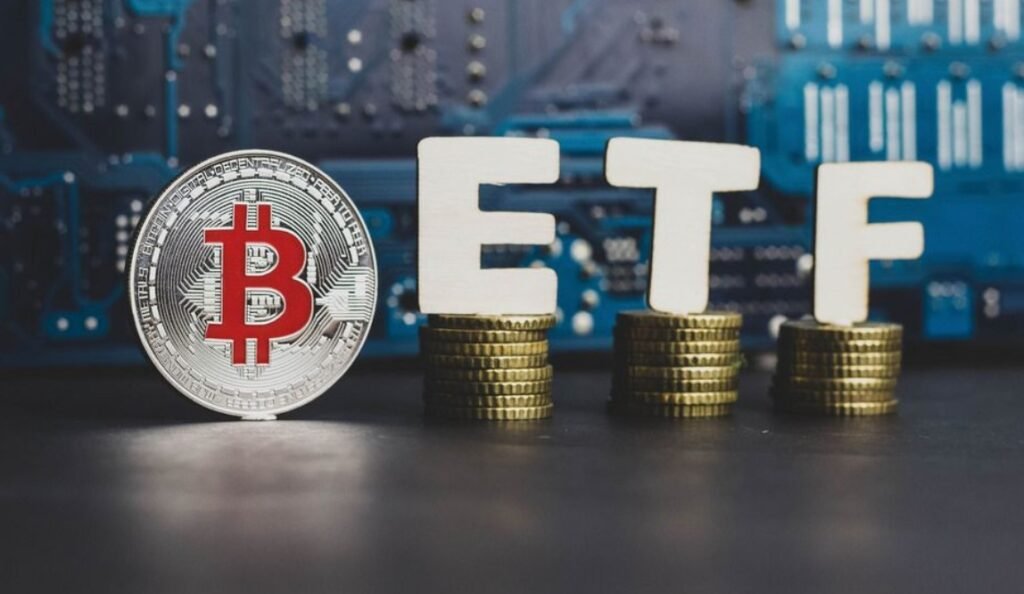Exchange-traded funds (ETFs) are investment vehicles that track the performance of an underlying asset or a basket of assets. They are traded on stock exchanges like regular stocks, making them accessible to a wide range of investors. Spot ETFs are a type of ETF that invest directly in the physical asset, such as gold or bitcoin, rather than using derivatives or futures contracts.
Spot ETFs are widely expected to boost the adoption and liquidity of bitcoin, as they would allow investors to gain exposure to the cryptocurrency without having to deal with the technical and regulatory challenges of buying and storing it. Spot ETFs would also provide more transparency and security for investors, as they would be subject to the oversight and rules of the Securities and Exchange Commission (SEC).

What is the status of spot ETF applications in the US?
The SEC has not yet approved any spot ETF applications in the US, despite receiving several proposals from various asset management firms, including BlackRock, WisdomTree, Valkyrie and others. The SEC has repeatedly delayed or rejected spot ETF applications in the past, citing concerns over market manipulation, fraud, custody and investor protection.
However, some experts believe that the SEC is closer than ever to approving the first spot ETF in the US, possibly as early as 2024. They point to several positive signs, such as the recent approval of bitcoin futures ETFs, the appointment of Gary Gensler as the new SEC chair, and the growing acceptance and regulation of crypto assets around the world.
How are bitcoin and other crypto assets reacting to the spot ETF prospects?
Bitcoin, the largest and most popular cryptocurrency by market value, has been outperforming other crypto assets in recent months, partly due to the anticipation of spot ETF approval. Bitcoin has more than doubled in value since the start of 2023, reaching a 18-month high of $37,970 last week. Bitcoin is also seen as a hedge against inflation and macroeconomic uncertainty, which have been rising amid the ongoing pandemic and geopolitical tensions.
Other crypto assets, such as ether, the native token of the Ethereum blockchain, have not fared as well as bitcoin, losing some of their market share and momentum. Ether, which is the leader of the alternative cryptocurrencies, or altcoins, has dropped by 7.5% since mid-June, while bitcoin has gained 8%. Some analysts attribute this divergence to the fact that bitcoin is more mature and established than other crypto assets, and that spot ETF approval would benefit bitcoin more than other tokens.
What are the risks and challenges of spot ETFs?
While spot ETFs are widely seen as a positive development for the crypto industry, they also come with some risks and challenges. One of the main risks is that spot ETFs could increase the volatility and speculation in the bitcoin market, as they would attract more retail and institutional investors, who may have different motives and behaviors than the existing crypto enthusiasts. Spot ETFs could also create more competition and pressure for the existing crypto platforms and services, such as exchanges, wallets and custodians.
Another challenge is that spot ETFs would require a high level of coordination and cooperation among the various stakeholders in the crypto ecosystem, such as miners, developers, regulators and investors. Spot ETFs would also depend on the availability and reliability of the underlying infrastructure and technology that support the bitcoin network, such as the blockchain, the nodes and the consensus mechanism. Any disruption or failure in these components could affect the performance and security of the spot ETFs.
